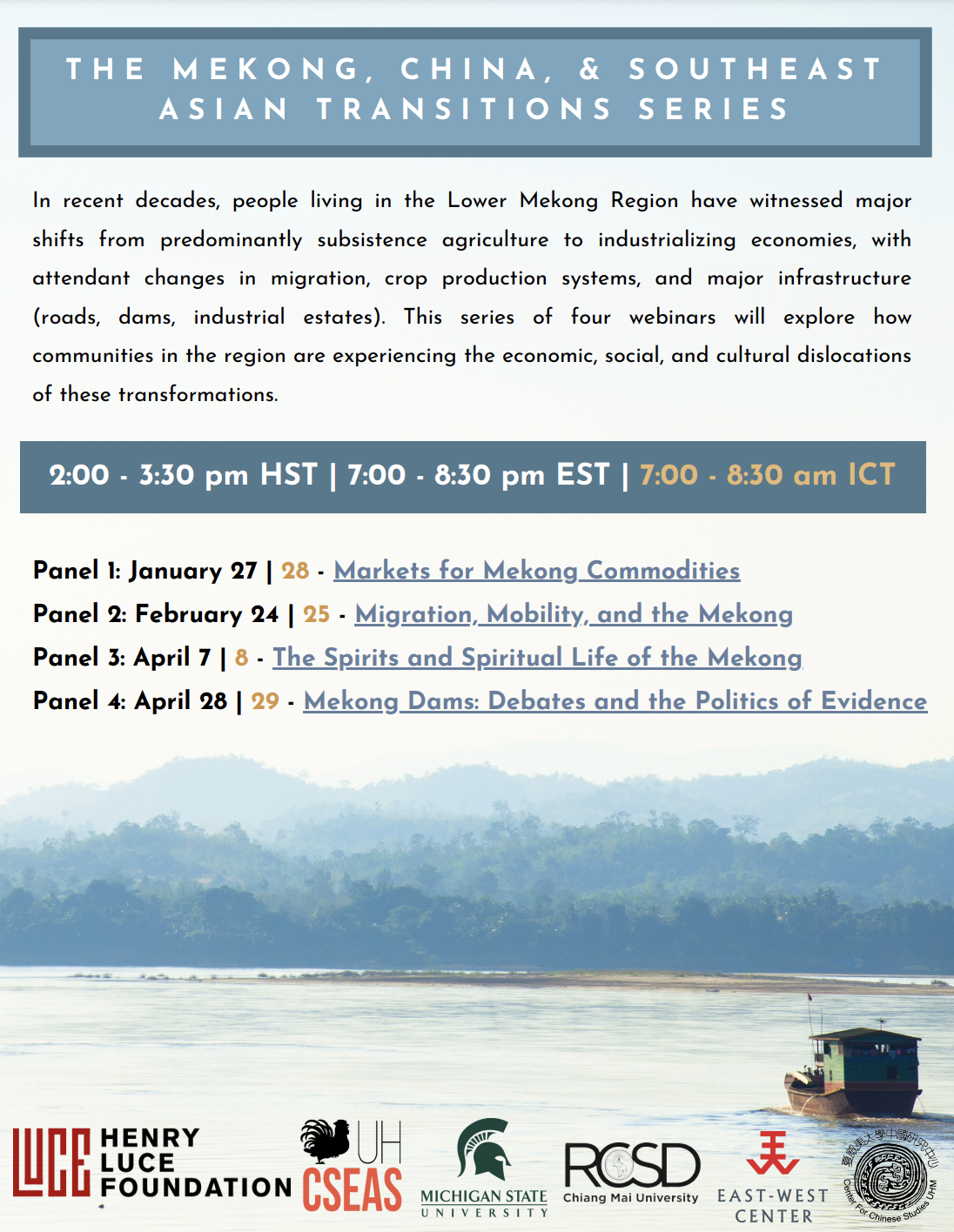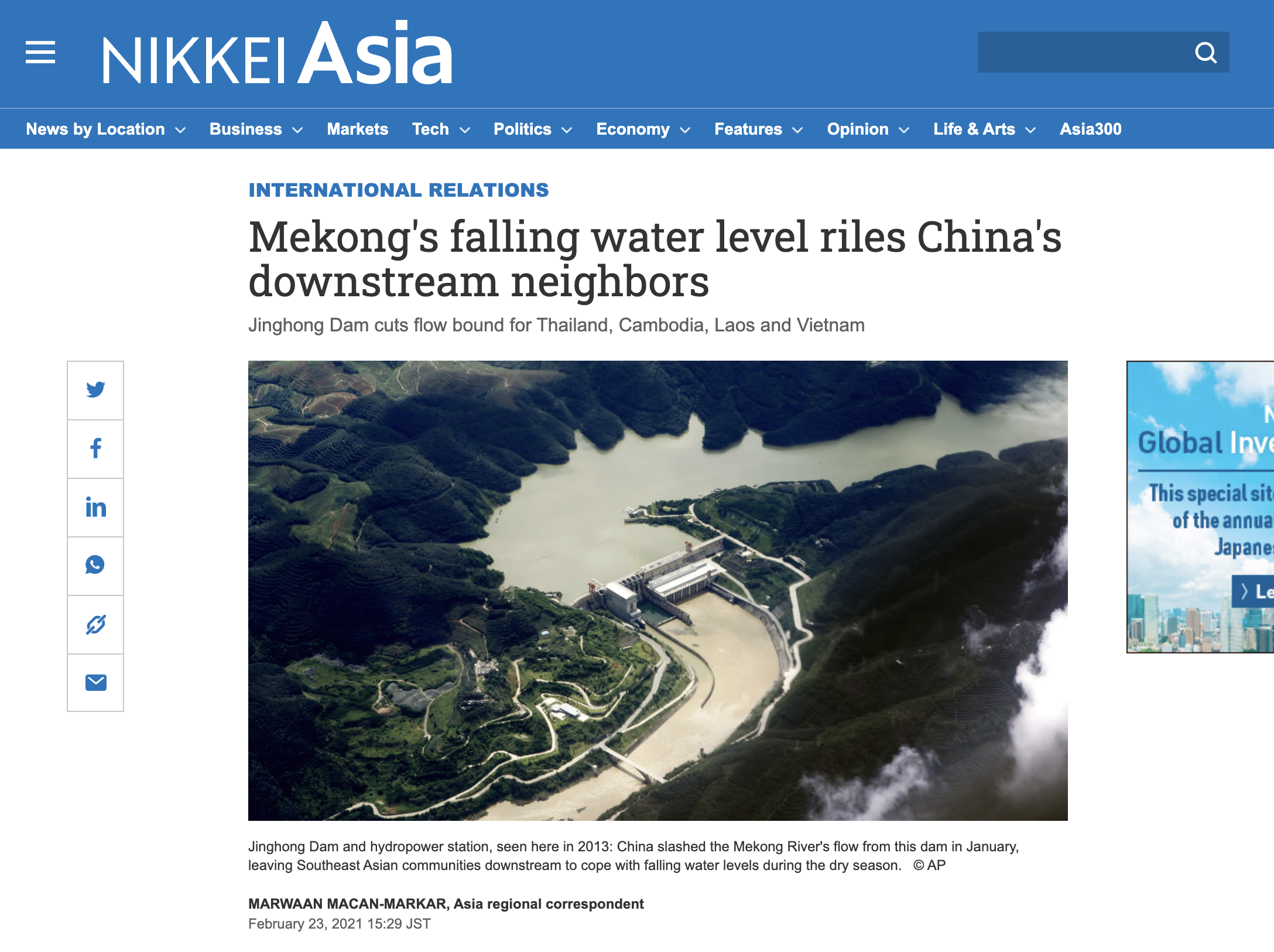UPCOMING EVENT: “Land into Capital” book launch and discussion [6 December 2022]
/Book launch and discussion on “Turning Land into Capital: Development and Dispossession in the Mekong Region”
6 December 2022, Chulalongkorn University Social Innovation Hub, Bangkok, and via Facebook Live
Hosted by the Center for Social Development Studies (CSDS), Faculty of Political Science, Chulalongkorn University
The issue of land falling into the hands of those with economic might has never been more topical than at present, reflected in the current debate over foreign land ownership in Thailand. Expanding the issue to the wider regional context, Turning Land into Capital: Development and Dispossession in the Mekong Region addresses ways in which reversals of earlier agrarian reforms have rolled back "land-to-the-tiller" policies created in the wake of Cold War–era revolutions. This trend, marked by increased land concentration and the promotion of export-oriented agribusiness at the expense of smallholder farmers, exposes the convergence of capitalist relations and state agendas that expand territorial control within and across national borders. The book examines the contradictions produced by superimposing twenty-first-century neoliberal projects onto diverse landscapes etched by decades of war and state socialism.
Chapters in the book explore geopolitics, legacies of colonialism, ideologies of development, and strategies to achieve land justice in Cambodia, Laos, Myanmar, Thailand, and Vietnam. The resulting picture reveals the place-specific interactions of state and market ideologies, regional geopolitics, and local elites in concentrating control over land.
A commentary will first be provided by Emeritus Professor Pasuk Phongpaichit, followed by responses and reflections from the editors/ authors of the book, and then open floor discussion.
Commentator:
Dr. Pasuk Phongpaichit is an Emeritus Professor in Political Economy with the Faculty of Economics, Chulalongkorn University, a Fellow of the Royal Society of Thailand, and co-laureate of the Fukuoka Grand Prize, 2017. Professor Pasuk’s publications include: Unequal Thailand (2016); We the People Revolutionize Tax for Equality (2020) and Land Governance in Thailand (forthcoming in 2023).
Moderator:
Dr. Naruemon Thabchumpon is an Associate Professor in the Faculty of Political Science, Chulalongkorn University, and Director of the Asian Research Center for Migration
Book editors/ chapter authors
Dr. Philip Hirsch is an Emeritus Professor in human geography at the University of Sydney and coauthor of Powers of Exclusion: Land Dilemmas in Southeast Asia
Dr. Kevin Woods is a Fellow at the East-West Center in Honolulu.
Natalia Scurrah is an independent researcher based in Thailand and coauthor of The Mekong: A Sociolegal Approach to River Basin Development.
Chapter author
Dr. Carl Middleton is Director of the Center for Social Development Studies and Deputy Director on the MA and PhD graduate program in International Development Studies in the Faculty of Political Science, Chulalongkorn University.
Venue: First floor, Visid Prachuabmoh Building, Chulalongkorn University
Further details on the book are on the publishers website here.
For enquiries, please contact Dr. Carl Middleton.
Please register to join the event here.
















